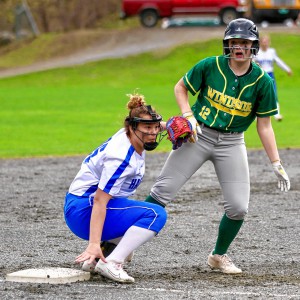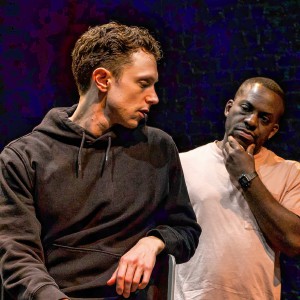Column: Are Flowers Better Than Bullets?
| Published: 04-05-2017 9:00 PM |
Who cares — who even realizes — that a Russian poet died at age 83 last week? We are much more caught up in Russian hacking than Russian poetry.
Yevgeny Yevtushenko wrote a poem about a girl I saw at breakfast, lunch, and dinner every day in 1969 and the beginning of 1970: Kent State freshman Allison Krause.
She was a student in the dorm complex where I was a graduate counselor. We ate in the same cafeteria. She and her boyfriend were the Romeo and Juliet of a 1,000-student residential complex called Eastway. They were notable for their long kisses and intertwined hugs. Oh, how they were in love back then.
She would bleed unconscious in his arms on May 4 that year, 1970.
Both had shoulder-length dark hair and rode a motorcycle, tandem, like flower children in their bellbottom jeans, hair blowing in the breeze.
Article continues after...
Yesterday's Most Read Articles
 Zantop daughter: ‘I wish James' family the best and hope that they are able to heal’
Zantop daughter: ‘I wish James' family the best and hope that they are able to heal’
 James Parker granted parole for his role in Dartmouth professors’ stabbing deaths
James Parker granted parole for his role in Dartmouth professors’ stabbing deaths
 2024 Upper Valley high school softball guide
2024 Upper Valley high school softball guide
 Art Notes: After losing primary venues, JAG Productions persists
Art Notes: After losing primary venues, JAG Productions persists
 Chelsea Green to be sold to international publishing behemoth
Chelsea Green to be sold to international publishing behemoth
The Russian poet’s poem about Krause is titled Flowers are Better than Bullets.
The day before she was gunned down on the Kent State campus during an anti-war protest, Allison Krause put a flower into the barrel of an Ohio National Guardsman’s rifle, probably the same caliber rifle (M-16) that would kill her 24 hours later.
She smiled at the guardsman and was heard to say, “Flowers are better than bullets.”
Yevtushenko’s poem begins:
Of course: Bullets don’t like people
who love flowers.
They’re jealous ladies, bullets,
short on kindness.
Allison Krause, nineteen years old,
you’re dead
For loving flowers.
Not exactly.
She’s dead because males can’t control their anger.
There’s a picture of Allison Krause standing on Blanket Hill at Kent State, taller than the others, almost 6 feet tall, with beautiful brunette hair, on the right side of the Pagoda where the guardsmen would shoot. It’s one of the famous pictures of the 1970s.
She is standing there in the midst of tear gas as the guardsmen march toward her and her arm is outstretched and raised, and if you zoom in you can see her middle finger raised in defiance of the raw power advancing toward her.
The guardsmen were 19- and 20-year-olds themselves, all males, all Ohio boys, raised on football chants and Woody Hayes, the most famous football coach in Ohio at the time. I can see those kids in uniforms and tear-gas masks, and imagine how they felt when they saw a girl giving them the finger.
Even today, that would be provocative. In 1970 it was inflammatory.
But was it a reason to shoot?
That night on television Allison Krause’s father wept as he read a statement: “Have we come to such a state in our country that a young girl has to be shot because she disagrees deeply with the actions of her government?” He meant Nixon. He meant Vietnam. But decades later that is all forgotten now, an image from the 1970s fading slowly. Just a memory or — like Civil War re-enactments — a tableau.
Yevtushenko says in his poem,
Let every apple orchard blossom black,
black in mourning.
It felt that way in May 1970, as if nature herself had been gut-punched.
Yevgeny Yevtushenko was 38 in 1970 when he wrote that poem. Allison was 19. She would be retirement age today.
And apple orchards have not blossomed black.
But as we have adapted to more and more violence in our world, what can we say for our hearts?
Paul Keane is a retired English teacher in Hartford. He w

 Editorial: Chris Sununu’s moral vacuum
Editorial: Chris Sununu’s moral vacuum A Yankee Notebook: An inevitable and terminal move
A Yankee Notebook: An inevitable and terminal move Editorial: Gambling tarnishes America’s sporting life
Editorial: Gambling tarnishes America’s sporting life By the Way: A white nationalist’s many mistruths
By the Way: A white nationalist’s many mistruths
